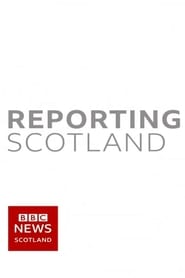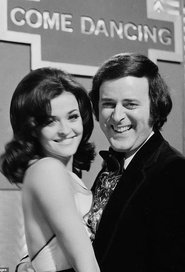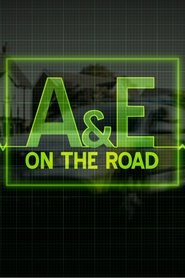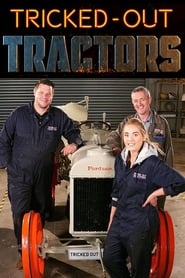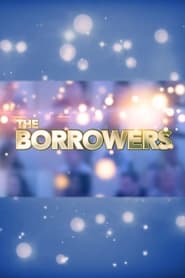Bbc One TV Series - Page 113
-
Reporting Scotland
0000
Reporting Scotland
0000
BBC Scotland's national television news programme, the only Scottish national news programme in the English language on air. -
Come Dancing
0000
star 9Come Dancing was a BBC TV ballroom dancing competition show that ran on and off from 1949 to 1998, becoming one of television's longest-running shows. The show was created by Eric Morley, the founder of Miss World, and began in 1949 by broadcasting from regional ballroom studios, with professional dancers Syd Perkin and Edna Duffield on hand to offer teaching. In 1953 the format changed to become a competition, with later series seeing regions of the United Kingdom going head to head for the coveted trophy. The many presenters over the years included Peter West, McDonald Hobley, Charles Nove, Terry Wogan, Brian Johnston, Angela Rippon, Michael Aspel, Noel Edmonds, David Jacobs, Judith Chalmers, Pete Murray, and Rosemarie Ford. Commentators included Ray Moore and Bruce Hammal. In 2004, a re-launched celebrity version entitled Strictly Come Dancing, hosted by Bruce Forsyth and Tess Daly, debuted on BBC One, and became a popular hit on Saturday evenings. The format of the newer show has been successfully exported -
Night Force
2020
-
A&E on the Road
2017
star 3.9Fly-on-the-wall documentary following the mobile medical teams of the West Midlands Ambulance Service as they deal with the demands of life on the NHS front line. -
Bitsa
0000
Bitsa
0000
Bitsa was a British television programme broadcast from 1991 to 1996 on BBC 1. It involved creative arts and "makes" very much like later show SMart. It was repeated for a time on the now defunct digital channel BBC Choice. The show featured two presenters who would create craft projects from household junk and craft materials. Sometimes the items created were quite complex and advanced, but were always presented with instructions for viewers to follow. The show also featured a 'challenge' section, in which school children would shout three numbers corresponding to a selection of numbered boxes, each containing a different material, for example cardboard tubes, sticks or fabric. The presenters would then have three minutes to create something using only these materials. Much fervent use of a glue gun often ensued. The theme tune for Bitsa was written by Peter Charlton and the original musical arrangement was by Bill Le Sage, but after the first series the tune was reworked by Mark Reader from the rock band Stride -
Just William
0000
star 6Just William was a BBC television series based on the Just William series of books written by Richmal Crompton. It ran for two series from 1994 to 1995. -
Walking With...
2021
Walking With...
2021
Well-known personalities take scenic walks in various locations across England. -
Sin on Saturday
0000
Sin on Saturday
0000
Sin on Saturday was a British live, late-night chat show based on the theme of the seven deadly sins. It was produced by BBC Scotland, but it was pulled from the schedules after only three broadcasts. Originally, the show was to broadcast eight episodes. The first seven were to be based on each of the deadly sins, and the eighth one intended to round off the series by talking about being caught sinning. The show was hosted by Bernard Falk and also featured comedy sketches and musical interludes. It included a memorable appearance by the actor Oliver Reed who interrupted an interview with a nun on the edition entitled ‘lust’. In 1992 the show was featured on a 'TV Hell' theme night broadcast on BBC Two. -
Dizzy Heights
1990
Dizzy Heights
1990
Dizzy Heights was a BBC television series about a disastrous partnership of two managers trying to run a seaside hotel. The show was about Mr Heap and Mr Wall's many adventures and regularly featured a Spitting Image style family of puppets called the Gristles who lived, and caused chaos in, the hotel. The show ran for three years, from 1990 to 1993 and was shown on BBC1 as part of Children's BBC. The Gristle family appeared in a series of their own called The House Of Gristle in 1994. -
Should I Worry About...?
0000
Should I Worry About...? was a British documentary series that aired on BBC One from 9 September 2004 to 18 August 2005. It was presented by Richard Hammond, where he looked at the science behind headline health scares. The series has been repeated on Dave. -
Tricked-Out Tractors
2020
Tricked-Out Tractors
2020
Tricked Out Tractors brings together an unlikely trio of petrol heads to tackle mechanical mess-ups and major makeovers on some of the country's most prized and admired tractors -
A Jubilee of Music
0000
A Jubilee of Music
0000
A Jubilee of Music is a one-off BBC Television entertainment show lasting 75 minutes, broadcast on 31 December 1976 on BBC1. The show was produced to celebrate the British music successes of the first 25 years of Elizabeth II's reign, on the eve of 1977, the year of her Silver Jubilee. Some non-British artists also took part, performing their British hits. The show was produced and directed by Stewart Morris. It was recorded at BBC Television Centre in December 1976. Despite being a high-profile broadcast at the time, the show has since been lost from the BBC archive and has not been seen in the UK since its one and only transmission. It was shown on several European networks at the start of 1977, including Belgian, Dutch, German, Swedish and Norwegian TV, as well as several networks in Africa and the Antipodes. The show was hosted by Dame Vera Lynn, who opened the programme performing a medley of British hits spanning 1952 to 1976, by leading British songwriters. These included Paul McCartney, John Lennon, Mick -
Paddington Green
0000
Paddington Green
0000
Paddington Green is a British television series, which explores the lives of the residents of Paddington, London. It is created by Lion Television and was first shown on the BBC in late 1998/early 1999. It is an example of the fly on the wall and docusoap television format, with narration by Ross Kemp in the first three series, followed by Todd Carty in the latter three. -
Pinwright's Progress
0000
Pinwright's Progress
0000
Pinwright's Progress was a British sitcom that aired on the BBC Television Service from 1946 to 1947 and was the world's first regular half-hour televised sitcom. The ten episodes, which aired fortnightly in alternation with Kaleidoscope, were broadcast live from the BBC studios at Alexandra Palace. Still photographs are all that remain of the show's transmitted form. Pinwright's Progress was written by Rodney Hobson, produced and directed by John Glyn-Jones and the script editor was Ted Kavanagh, who also wrote the BBC radio comedy series It's That Man Again. -
Clive Anderson Now
2001
Clive Anderson Now
2001
-
Why...?
2022
Why...?
2022
From shark attacks to transport disasters and collapsing buildings - why do these events happen? Delve into the mysteries and science behind the stories that hit the headlines. -
The Science Of Superstorms
2007
Documentary films tackling viable means of reducing or preventing the impact of extreme weather. -
BBC Look East
0000
BBC Look East
0000
BBC Look East is the BBC's regional television news programme for the BBC East region, Norfolk, Suffolk, Essex, Cambridgeshire, Northamptonshire, Bedfordshire, Hertfordshire and north Buckinghamshire. The programme began on 5 October 1959, making it the BBC's longest-running regional news programme. Look East is broadcast from BBC East's headquarters at The Forum, Norwich. Prior to 29 September 2003, the programme aired from studios in St Catherine's Close, Norwich. The programme can be watched in any part of the UK on Sky Digital channel 961, and channel 962 for the "west" sub-regional service from Cambridge or Freesat channels 953 and 954, on the BBC UK regional TV on satellite service. The services were added to the Sky Digital platform on 29 July 2003 and were available on Freesat from launch. In 1997 Look East launched the sub-regional service, Close Up, for viewers covered by the Sandy Heath transmitting station and its relays. The opt-out allows the two sub-regions to provide, during the main evening prog -
The Borrowers
2021
